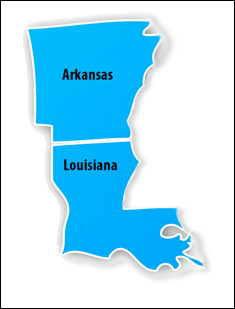As we predicted last week when Rep. Tom Cotton (R-AR-4) announced his challenge to Sen. Mark Pryor (D-AR), this campaign could conceivably draw the most attention of any political race in the country. Yesterday, as reported in several political publications, already two more Arkansas Senate surveys were released.
Both of the new studies are from Republican pollsters, The Polling Company for the Washington Free Bacon conservative political website and OnMessage for the National Republican Senatorial Committee. Both project the race to be a dead heat. The Polling Company (Aug. 6-7; 600 registered Arkansas voters) scores the battle 45-43 percent in favor of Sen. Pryor. OnMessage (July 29-30; 600 registered Arkansas voters) gives Cotton a similar 44-42 percent edge.
These numbers are on the heels of another poll, from Harper Polling (Aug. 4-5; 587 registered Arkansas voters) that shows the same two point spread, this version 43-41 percent in favor of Republican Cotton.
But the ballot test questions do not give us the most salient clues as to how this campaign will likely unfold. It is clear from examining the questions asked, and the respondents’ answers, that the new national healthcare law’s implementation can become the over-riding driver of the campaign. Looking ahead through next year, if Obamacare implementation does become the determining focal point, Cotton likely will win. Conversely, if the new healthcare law is being implemented in a satisfactory manner and other issues evolve into greater or equal importance, Sen. Pryor probably survives.
According to The Polling Company data, 50 percent of the respondent pool would be less likely to support Sen. Pryor because of his vote in favor of Obamacare, versus the 40 percent who answered more likely. The OnMessage totals are more stark. According to their data tables, 55 percent would be more likely to support Cotton because he voted to repeal Obamacare, contrasting with 33 percent who say they are more likely to support Sen. Pryor because he voted for Obamacare.
Most analysts believe that the public view of the new healthcare law will deteriorate over the next year as more people understand how the legislation will directly affect them. Therefore, Cotton must use his campaign to Continue reading >



